If you know me then you know that I’m a huge fan of using thyroid supplements.
They can not only help you get off thyroid medication, they can also help that medication work more effectively if you must take it.
But this assumes one very important thing:
You are using the right supplements for your thyroid.
Because, while some ingredients can certainly help your thyroid, there are others that can easily cause more harm than good.
And what I want to do today is talk about those supplements and ingredients that thyroid patients need to be cautious of.
#1. Biotin
Biotin has a bad reputation among thyroid patients who don’t quite understand how it impacts the thyroid.
Most people believe that it has some negative impact on the thyroid but they can’t quite define that impact and they don’t completely understand it.
Let me set the record straight:
Biotin does not have any direct negative impact on thyroid function.
In fact, it’s actually great for thyroid patients because it’s needed to break down fats, proteins, and carbs.
Your body then uses that cellular energy for your hair, skin, and nail health.
The only problem? It does have an impact on the accuracy of your thyroid lab tests.
If taken in high doses, can react with the thyroid testing assay and make it look like you have more thyroid hormone in your system than you really do.
In other words, it will make you look hyperthyroid or like you are taking more medication than you should be (1).
And if you or your doctor aren’t aware of this fact then you will most likely end up being underdosed leading to low thyroid symptoms like weight gain and hair loss.
Sure this means you should avoid biotin, right?
Absolutely not.
You can have your cake and eat it too but simply avoid biotin for a few days prior to when you get your thyroid labs tested.
This completely solves the problems and allows you to get all of the benefits biotin provides on your hair, skin, and nails, without any of the downsides.
There’s no reason to avoid biotin, just make sure to use it correctly.
#2. Caffeine
And let me take the unpopular position here and say that if you have a thyroid problem of any type then you should probably be avoiding caffeine.
This includes coffee, energy drinks, soft drinks, and any other significant source of caffeine with the exception of cocoa (for the reasons listed here).
There are two big reasons I make this recommendation:
The first is that caffeine has a stimulating effect on the GI tract which can negatively impact thyroid medication absorption (2).
But there’s another reason…
Caffeine also has a stimulatory effect on the adrenal glands resulting in the production of epinephrine and norepinephrine (3).
This may be beneficial for supporting metabolism and helping you stay alert, but it’s not ideal if you are already in a state of thyroid-related fatigue.
But I do get it, people love the way caffeine makes them feel.
And there are even some studies that suggest caffeine intake, within a certain threshold, may have a positive effect on the thyroid in metabolically unhealthy people (4).
Correlation does not equal causation here and it’s been my experience that thyroid patients paradoxically get more energy and and have better sleep when they eliminate caffeine.
If you must consume caffeine in, let’s say, coffee, consume it responsibly and keep your dose to less than 50 mg per day.
And if you are taking thyroid medication, then take it as far away as possible, at least 60 minutes, but preferably a few hours.
#3. Fiber
When most people think about fiber they probably think about foods high in fiber but there are also supplements that contain fiber as well.
Some of these supplements are used to help with normal bowel movements such as Metamucil, Citrucel, Benefiber, and so on.
And others are used for weight loss purposes like glucomannan.
No matter what type of fiber you’re taking, you should know that it may not be good for your thyroid.

The reason for this is that fiber forms a mass in your gut that delays absorption.
If your thyroid medication gets caught in this mass, it will impair your ability to absorb it (5) and get it into your bloodstream where you want it.
This delay in absorption is actually a good thing, especially when we’re talking about carbohydrates and appetite control.
But bad when it comes to thyroid hormone.
The good news is that it can be easily solved by simply taking your thyroid medication several hours away from whenever you take a fiber supplement.
So you can still get the benefits of weight loss if you’re taking glucomannan or the benefits on bowel movements if you’re using Metamucil, so long as you take them correctly.
#4. Estrogen Support Supplements
As a woman, few hormones are more important than estrogen, with the exception, of course, of your thyroid.
Which is why it may come as no surprise that many women are taking supplements that support the function of estrogen.
This is great for problems related to estrogen: progesterone imbalances, but you can get into trouble with your thyroid if you aren’t careful.
Estrogen has a stimulatory effect on an important protein known as thyroid-binding globulin (6).
And this is the protein that holds and shuttles thyroid hormone in your bloodstream.
About 99% of thyroid hormone is bound to various types of protein leaving only a small amount available for use by the body.
If you increase the amount of this protein you will automatically decrease how much free thyroid hormone is available.
This isn’t necessarily a bad thing by itself, in fact, it’s great to have balanced estrogen levels, but it is absolutely something you should be aware of if you are taking something that increases or supports estrogen.
Your job as a thyroid patient who is taking something to support your estrogen is to simply keep an eye on your free T3 and free T4 and, if necessary, make adjustments to your thyroid medication dose.
#5. Iodine
I already know what you are thinking on this one:
“How can you say iodine is dangerous when you recommend using it and even put it in your own supplements!?”.
So let me be clear:
I do recommend iodine and I think that most thyroid patients are not getting enough of it which is why it’s found in many of my own thyroid support formulas.
But I also believe that many people misuse iodine by using the incorrect dose.
And this is what causes the issues that people see when they take iodine.
Taking higher than recommended doses of iodine does carry risks (7) and, when taken at these levels, their risks do not outweigh their benefits.
For perspective, safe dosing of iodine is within the range of 150 to 300 mcg of iodine per day.
Things start to get questionable as doses get up to 1,000 mcg per day or 1 mg.
And doses higher than 3,000 mcg per day really have no place in the treatment or management of thyroid disease.
The bottom line?
Use iodine but don’t use excessively high doses as they are increasingly dangerous and provide little to no benefit over smaller doses.
The reality is that you can overcome iodine deficiency with consistent daily doses over the course of weeks to months.
There’s no reason to overdose on iodine in the short term in an effort to eke out small gains in thyroid function. It’s just not worth it.
#6. Iron
Iron is actually an incredibly important nutrient for your thyroid but it’s what I call a Goldilocks nutrient.
You need just the exact right amount in order for optimal thyroid function.
Too much and you push yourself into iron overdose and all of its consequences.
Too little and you’ll end up with no benefit and remain hypothyroid despite optimizing your thyroid medication.
So how does iron impact thyroid function and why is it so important?
The primary way is through its impact on the enzyme thyroid peroxidase (8).
This enzyme is responsible for creating thyroid hormone and it’s considered heme-dependent or iron-dependent.
In other words, in states of iron deficiency, thyroid peroxidase will be less efficient at creating thyroid hormone and you will end up hypothyroid.
To make matters worse, the low thyroid state impairs iron absorption which leads to a cycle of worsening thyroid function and worsening iron absorption. And so on and so on and so on.
But there’s another problem:
You can’t just take iron and call it a day because iron has the ability to react with thyroid medication and render it inactive.
So if you take iron without taking it appropriately you can actually reduce thyroid function further making everything worse.
This seemingly complex problem has an easy solution:
First: get tested for iron deficiency and ferritin deficiency.
Second: if present, take iron supplements to increase both into the mid-range.
And third: if you’re taking iron make sure to take it 4 hours away from your thyroid medication.
#7. Calcium
Calcium is another ‘binder’ of thyroid medication.
While it doesn’t harm your thyroid directly it can absolutely bind to and inactivate thyroid medication (9) if you take them at the same time.
Calcium is found in all sorts of multivitamins and supplements and it’s often recommended by conventional doctors in women who are suffering from bone loss.
In addition, the calcium content found in foods can have a similar effect on thyroid medication if taken together.
For these reasons, there’s a decent chance you’re taking calcium without even realizing it.
Like iron, you must take calcium at least 4 hours away from your thyroid medication.
The only two ingredients that require this strict 4-hour period are calcium and iron, though, so don’t let other supplements and ingredients stress you out.
#8. Thyroid Glandulars
If you aren’t aware of thyroid glandulars let me fill you in:
Thyroid glandulars are portions of animal thyroid glands that have been dried and crushed and added to over-the-counter supplements.
This should sound very familiar to you, especially if you take any medication that falls into the class of medications known as Natural Desiccated Thyroid.
There’s one big difference, though:
Thyroid glandulars do not contain standardized amounts of active thyroid hormone, unlike their medication counterparts.
Some people are perfectly fine with that and it’s the reason they are so attracted to glandulars in the first place.
After all, who doesn’t like the idea of getting thyroid hormones from a more “natural” source without the need for a medication?
That’s okay if you want to do this, but you have to realize that not having a standardized amount of thyroid hormone in each dose can pose problems, especially if you’re taking thyroid medication.
It may make your lab tests inconsistent, you may feel good on one lot and not another, and it has a small risk of pushing you into a hyperthyroid state.
It’s for these reasons that most conventional doctors will label glandulars as dangerous and recommend they should be avoided.
But if you are someone who is okay with these potential problems then I think you can make the choice to determine if they are worth it in your own personal situation.
#9. Acid Blockers
I’ve included acid blockers here even though they are technically an over-the-counter medication and not a supplement.
But no matter how you classify them, the truth is that they cause a lot of problems for thyroid patients.
Yes, they may reduce the symptoms of acid reflux, but it comes at the cost of some well-documented problems including:
- Reduced absorption of thyroid medication (10).
- An increased risk of multiple nutrient deficiencies including magnesium (11), iron, and vitamin B12 (12).
- An increased risk of developing bacterial overgrowth syndromes.
- An increased risk of developing food sensitivities (13).
- And an increased risk of developing inflammation in the gut.
If you have a thyroid problem then do whatever is necessary to get off your acid blocker.
The Bottom Line?
Taking supplements if you have thyroid disease (of any type but especially hypothyroidism) can be incredibly helpful!
Just realize that not all supplements are “good” or “right” for thyroid patients.
Don’t let this information scare you away from taking them, though, because about 80% of thyroid patients who use them report significant improvements in how they are feeling.
If you want to learn more about which supplements are best for your thyroid then be sure to check out this article next.
Now I want to hear from you:
Were you aware of these supplements and how they impact your thyroid?
Are you taking any of these supplements or nutrients already?
Are you planning to change how you take them?
Or do you have any other suggestions to add based on your own experience?
Leave your questions or comments below!
Scientific References
#1. https://www.ncbi.nlm.nih.gov/pmc/articles/PMC6103391/
#2. https://pubmed.ncbi.nlm.nih.gov/19942153/
#3. https://pubmed.ncbi.nlm.nih.gov/12140349/
#4. https://www.ncbi.nlm.nih.gov/pmc/articles/PMC10369722/
#5. https://pubmed.ncbi.nlm.nih.gov/9737361/
#6. https://www.ncbi.nlm.nih.gov/pubmed/2837662
#7. https://www.ncbi.nlm.nih.gov/pmc/articles/PMC8106604/
#8. https://www.ncbi.nlm.nih.gov/pmc/articles/PMC10675576/
#9. https://www.ncbi.nlm.nih.gov/pmc/articles/PMC3092723/
#10. https://www.ncbi.nlm.nih.gov/pmc/articles/PMC8175524/
#11. https://www.ncbi.nlm.nih.gov/pmc/articles/PMC3782221/
#12. https://www.ncbi.nlm.nih.gov/pmc/articles/PMC6054240/
#13. https://www.ncbi.nlm.nih.gov/pmc/articles/PMC9923889/
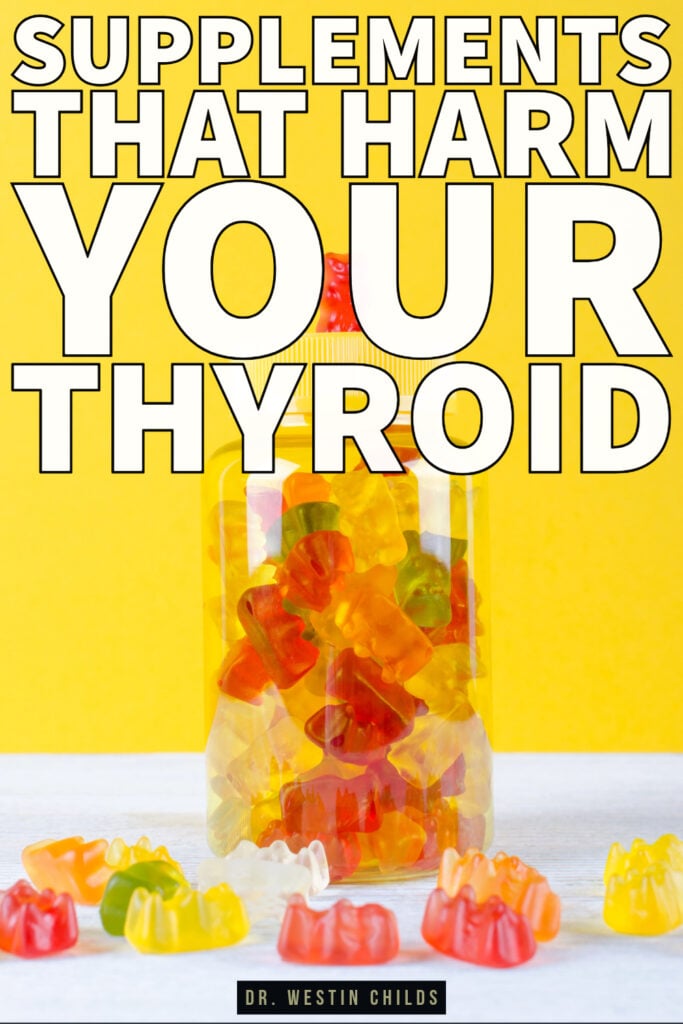
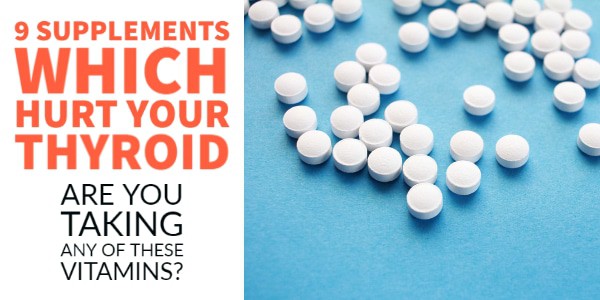
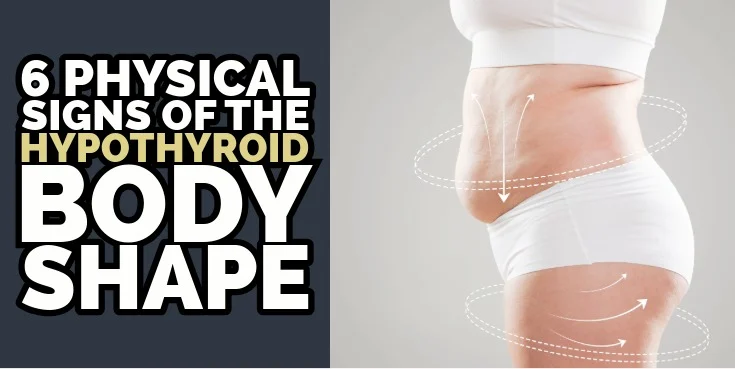
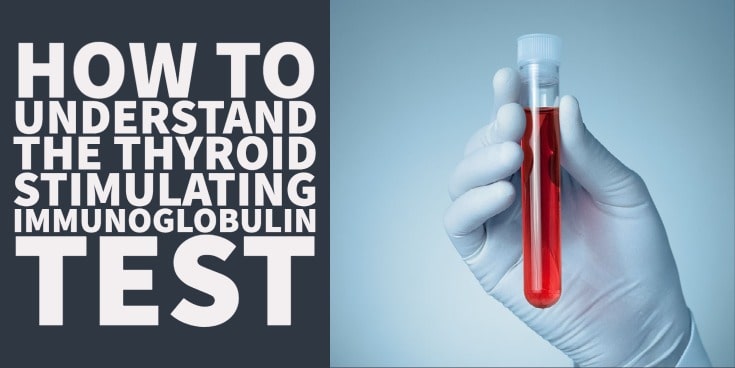
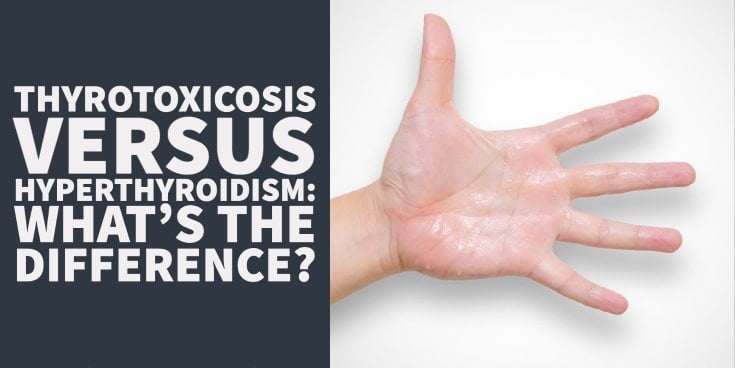
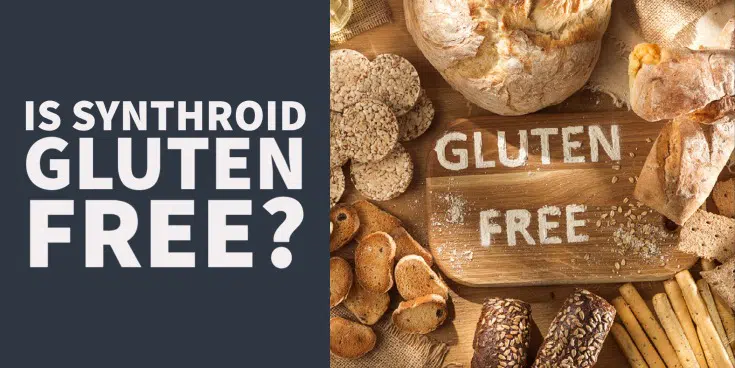
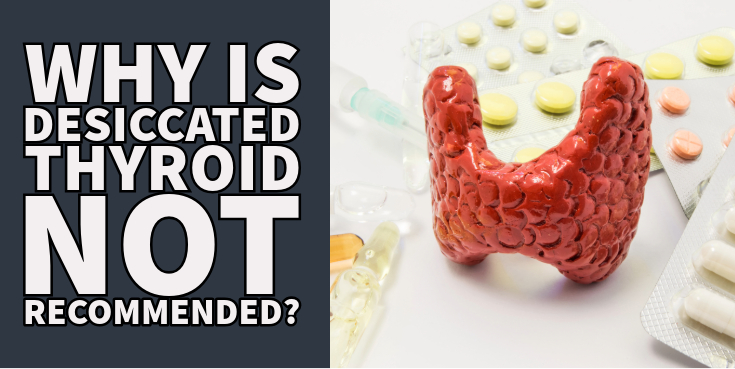
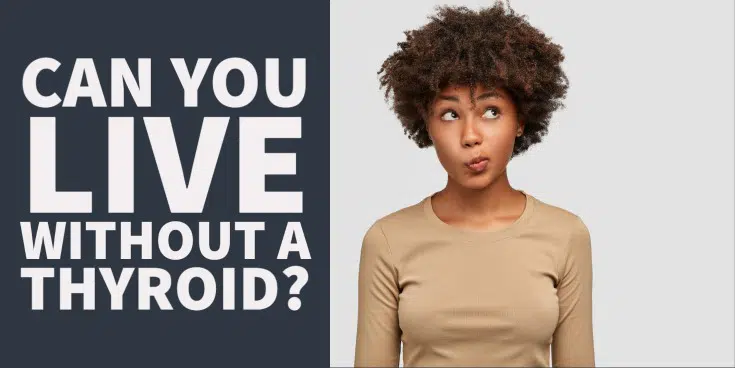

Thank u for sharing, I’ve bn taking a supplement from Dr Dan Colbert(divine health) called thyroid zone along w/nature thyroid 48.5mg. Usually take supplement 2 hrs after thyroid meds. Now my functional MD has increased thyroid med to 65mg becuz my TSH score was 3.6. My T3 & T4 r normal. Im menopausal for 3 years and on topical progesterone and estrogen/with testosterone (low dose) My question is I’m still loosing hair..Never had this prob before in my life. It all started when I started taking thyroid meds and hormones. Dr Paul Rothwell does saliva testing w/blood work. Anyhow one of my friends mentioned I should get in liquid iodine and lower my thyroid meds gradually. She did this and her hair quit falling out. I’m confused. Could u send me some advice.. ThAnk you and may gods blessings keep providing u with wisdom..
Lisa Keith
Hi Lisa,
If hair loss is your primary concern I would take a look at this article which outlines how to manage hair loss in thyroid disease: https://www.restartmed.com/thyroid-hair-loss/
Hi Dr Childs,
I am typically fairly hypothyroid
I had until more recently taken 180 mg ERFA ( i believe dessicated)
I have labs that are low T3, T4 and very low TSH. Having the last 2 months waking up in the wee hours with rapid heartbeat, some weight gain and fatigue. I went off all ERFA suspecting the type of thyroid replacement.I have been supplementing with TRH ( peptide) and have been trying to supplement back in some ERFA, but back to rapid heartbeat and no sleep even with very lowered doses. 30 mg and then I bumped up to 60mg.
I feel like the supplementing TRH is the right thing to do but maybe I need to switch to another thyroid med? Would love to hear your thoughts.
Lisa
Dr Childs,
Who do you recommend for a Thyroid Dr in Oklahoma City area?
Lisa Keith
Dr. Childs,
Do you include green tea in your recommendation against caffeine?
Hi Malinda,
Anything with caffeine has the potential to cause issues.
I have thyroid nodules for 10 yrs
I have ozone treatments.
Dr told me my nodules are solidified and not to worry about it
But lately my blood pressure is very irregular
High pulse to very low pulse 40 pulse to 90
High bp to normal bp
I can’t get results
thank you for all this great information about thyroid dysfunction. I have Hashimoto’s and will be buying some of your supplements to take.
Thanks so much for providing excellent products and research based resources. My supplement question concerns the use of vitamin c. I have read that supplementing with vitamin c May positively impact the absorption of levothyroxine. Do you have any suggestions as to resource material that supports this ?
Many thanks…..
Hi Marjorie,
I’ve never seen any studies which show that vitamin c helps with thyroid medication absorption. It doesn’t mean they don’t exist, though!
I have had hypothyroidism for 35 years and been on Synthroid, Levothyroxine and natural during this time. Nine months ago I broke our in a red rash. Biopsy came back as Lichenoid dermatitus. It itches and moves around. Currently hands, elbows, knees. I’ve changed thyroid meds to Levoxyl because it is believed the fillers in my other brand of levothyroxine is the cause.
My daughter read an article stating it is caused by T4 overdose.
Have you any info on this?
Hi Jean,
I’ve never seen that happen from high doses of T4.
With regards to the above, what if you take your NDT and T3 sublingually? Is it still a worry?
This is a very helpful and interesting article. My question is regarding taking acid blockers. I have been taking medicine for acid reflux for many years. I cannot go without it because it flares up if I do. Do you have any recommendations on what I can take for acid reflux that will not affect my thyroid function? Thanks!!
Both my cousin and I have found our acid reflux triggers to be diet related. She had to cut corn products and I had to cut dairy and limit my tomato intake. Other triggers for mine I’ve figured out are too much sugar/sweets, soda (haven’t had in years) and going too long between meals. Both of us have come off of our acid reflux meds after making diet changes. Worth digging into!
I stopped Biotin because I thought it was interfering with Thyroid T3 (only) medication now I will be restarting (Thank You)
I started taking Melatonin brilliant for sleep very relaxing consequently put on 7kg so this must have a negative effect
on Thyroid meds
Thank You so much for all your great advice
Hi Mary
Happy to help!
Did you changed your thyroid medication brand? I am asking because I had big problems when from the pharmacy they replaced my usual brand of Levothyroxine with another one. I was feeling worse and worse by day, and gaining lots of weight even though the lab tests were ok. Only after 6 months the lab tests changed and we realised that my body wasn’t absorbing that brand of thyroid medication at all. Now, after about 8 months after I came bach to my old brand I started to see results and feel much better.
Dr. Childs,,, I have to take acid reflux medication twice a day. It is Famotidine, 20 mg. I also take Spironolactone because I cannot take blood pressure medicine. My tsh level dropped to 0.13 and I felt horrible. No energy, shaky, anxiety, headaches, freezing cold and extreme exhaustion, have a hard time sleeping. Balance is unsteady. I take Levothroxine 100MCG every morning around 6 am. An hour later I take my acid reflux medicine and then an hour later eat breakfast and take the water pill, NO caffine. My level is suppose to be between 1-1.5 which I feel good then. Why would it be dropping so mucch. My doctor did lessen my meds but am wondering if they are still to high. Thank you for any advice you can give me. Shirley
You say that thyroid glandular can be helpful. I have no thyroid and I take armor.
How might the addition of thyroid glandular be helpful to me?
thank you.
Ellen
Hi Ellen,
Thyroid glandulars contain additional proteins, enzymes, and precursor hormones that the human thyroid gland would need/use were they available. If you do not have a thyroid, your body can still utilize these ingredients to improve thyroid function throughout the body.
Dr Childs, I would like more detailed information on taking estrogen and thyroid medication. How do we get the most benefit from each drug?
Dr. Dr. Childs, I am a MD and a thyroid doctor, well I was, and I want to congratulate you on being so young and yet able to get it and to understand so much. it took me years to get to where you are. GREAT, so few doctors are able to comprehend what is really going wrong with the human body.
Hi Dr. Love,
I appreciate the kind words! It’s rare to find another physician who thinks this way so thanks for stopping by and leaving a comment.
Very helpful; thank you. Interesting to read about overdoing iodine; I’ll pay more attention to that (but I always take selenium, as well).
Hi Dr Childs, I take Armour Thyroid and usually about 4 hours later, with a meal, I take a grass-fed beef liver supplement. Is that ok to do? BTW I thoroughly enjoy watching your videos as I have learned so much from you. Thank you again.
I have to take Acifex because of Sjogren’s. My esophagus is extremely impacted if I don’t. I think It’s a real catch-22 when it comes to saying not to take them. My last esophageal dilation was problematic because I had stopped taking an acid reducer. It was bad.
I recently found out that I have Hashimotos autoimmune but my thyroid tests are ok. Years ago I was treated for hyperthyroidism until my thyroid “started to work by itself”. I see an endocrinologist next month….but, I also just learned I have Barretts Esophagus…… Do I have to pick which one to treat? (69 yrs, f, overweight, trying to decide between cervical &/or lumbar disk replacement). Thanks….
Deni,
Have you gone to a good chiropractor or osteopath? Sometimes if my back is out it pinches the nerve to the stomach or other digestive organs. Since you said you have back issues, maybe do a consultation to find out what disk issues are affecting what body organs.
I am currently on 88 mcg of levothyroxine. I was taking Biotin for
hair, skin and nails. My endocrinologist told me to stop taking
it because it was affecting my thyroid. If I understand your
statement, it just affects the lab tests. I will contact him because
my hair is thinning. It might be genetic, however.
A friend who also has hypothyroidism recommended folic acid.
She goes to the same doctor as I do. Your thoughts on folic
acid please?
I am learning so much about thyroid. I had radioactive treatment years ago but the last couple of years I have not felt like myself. I am on caffine big time trying to keep going. I am 75 now and several of my family have thyroid issues. I am learning so much from you. Thank you.
Frances
Hi, Dr. Childs. I’m currently taking 12.5 mg iodine three times a week which seems to be safe according to your information. I do eat some dark chocolate each day but due to caffeine, I’m assuming I should stop this. My new doctor recently switched my med to Thyroid NP from Levothyroxine, which I had been on for years and didn’t seem to help. In spite of all of these changes and improvements, I still experience ‘thyroid fullness’ at times and can’t seem to relate it to anything particular. Any suggestions? I’m also having trouble getting your list of foods for thyroid. I try downloading but nothing happens. Any other way of getting it? Thanks so much for all of your information, your videos and help with thyroid issues.
I take prescribed med, FAMOTIDINE, 20MG., now once a day. was taking it morning and night. The doctor has cut the morning dose so just doing night before bed. Will this still affect my thyroid medication, Levothyroxin 88MCG?
Any thoughts on collagen supplements and the thyroid?
Thanks
Hello Dr. Childs, I have had a total hysterectomy and no longer have either of my ovaries. I wear a hormone replacement patch Vivelle Dot which contains estrogen only. Would this affect my thyroid and/or labs? Thank you so much for your assistance and all of the educational material that you provide.
I’d love to know this as well. I use to take the vivelle.dot for years but for some reason it stopped working on me so had to switch to pill form but still bioidentical per my Dr. Hoping that doesn’t interfere.
Dr. Childs,
I am a practicing Pharmacist of 45 years. I have been dealing with hypothyroid long before we had a name for my condition, Hashimoto’s Thyroiditis. I have also spent many hours in research trying to understand and convince doctors what I needed in order to function. Your research and knowledge is amazing. I send all my Thyroid patients to your site to learn all they can about their disease. Thank you for giving me peace of mind. I know my patients have a place to go and learn about and how to move forward in the their treatment therapy.
Hi Anna,
So glad the information is helpful to you and your patients!
My doctor confused me. My TSH was 0.0266. Every other thyroid test was normal as were all of my test results. The same result in 2019. This time she took me off my levothyroxine completely for 3 months, ordering new labs in December. I have been taking 75 mcg. I realize this result was in the hyperthyroidism range but she didn’t even mention it on the previous test. I guess I wonder if this was an extreme action. I already feel the belly bloat and tiredness after one month. Your opinion?
I’m 70. Taking armour Forest MGF since age 12 where I weight 154 after age 11 had D&C operation. I weighted 140 9years ago. I’m 174 # now. Drink alot of Coffee the last 2 years. Green tea before that. Labs normal. Something is extremely wrong. 9yrs. Horrible looking fat belly last 3 yrs. I need help !!! Please help me
What about magnesium? And if taking Estrogen we should just adjust our thyroid med dose accordingly? Thanks.
I am 67 and have hypothyroidism since I was a teenager. For the last few years I have had bio-identical estrogen and testosterone pellets inserted in my hip twice a year to replace what my body no longer produces. I think they have helped me feel better. Should I stop that?
Hi Elise,
If they are making you feel better and your numbers look good then you wouldn’t need to stop. There are disadvantages to using pellets but they do work for some people: https://www.restartmed.com/hormone-pellets/
Thank you Dr Childs for the information you offer! it is the best!
I am 72 years old and I have taken my thyroid meds at night for several years now. It does not interrupt my sleep. Is that ok?
Hi Joan,
Yep! That’s fine.
Thank you for this article,i found it most informative.
I have been using estrogen patches now for over 7 mths for my hot sweats and Insomnia,which have helped.
However,for the last week or so,i have been suffering from heavy limbs,that feel like i have done excessive weight workouts.
The last time my legs felt like this was when i was taking acid blockers too near my thyroid meds,and after reading this article,i have come to the conclusion,it could be my HRT causing it.
I have Hashimotos,and over the last few months,my thyroid levels have gone up from 1.35 to 3.
I have had my thyroid removed and in the surgery they also took one (or more) parathyroid glands. My PTH blood test shows on the low end. My blood calcium has been low also, so doctor said to take calcium supplements. I take calcium citrate. I will now make sure to take it 4 hours away from the thyroid med (nature-throid now). Is this the best way to deal with my calcium balance?
I have hypothyroidism and a Schatzky (sp) ring for which I take Rabeprazole once a day. If I shouldn’t be taking an acid reducer, what is the alternative?
Hi Catherine,
Please see this post for more info on that topic 🙂 https://www.restartmed.com/acid-blockers-thyroid-problem/
Good Morning
I take a prelief in the am before my 1 cup of coffee ( I have interstitial cystitis). I wait 2 hrs then take my Levo. Is this workable.
Honestly, I can barely eat anything due to the severity of my IC and I really love my morning coffee. I only drink 1 cup. After reading your article, I am concerned.
Thank you so much for all your wonderful articles.
Hi Terrilyn,
Happy to help! It would be better to completely avoid coffee or at the very least, separate when you take your thyroid medication and coffee by as long as possible.
Terri Lynn,
You may want to check out Uqora for your IC issue.
Hi there! As a hashi patient who also has extreme stomach issues. I take 2 different kinds of acid reducers in double doses daily. Without these I can not function. Any suggestions on something I could take for that that wouldn’t effect my thyroid?
Hi Kristy,
Yes, please see this article for more information: https://www.restartmed.com/acid-blockers-thyroid-problem/
Dr. Child’s,
I am a 70 year old post menopausal female with hypothyroidism. I take 90 mg Armor thyroid every day. I have extreme mobility issues caused by spinal stenosis from mid back down. My physician started me on omeprozole about 10 months ago. I just had all my lower teeth removed with 4 implants for a lower denture. Since the dental work (5 weeks ago), I have gained almost 40 pounds. I am also diabetic for the past 25 years. My cholesterol and triglycerides are pretty much normal but I am exhausted all the time with periods of extreme cold occurring rapidly even in an Alabama summer. Unfortunately, competent Drs are rare. Any suggestions?
Hi Diane,
Yes! I would strongly recommend using this resource to try and find a doctor to put you on the right path. You want to get this taken care of as quickly as possible: https://www.restartmed.com/how-to-find-a-doctor-to-treat-your-thyroid/
Hi Dr. Childs. Thank you for your informative articles. I learn so much from you. I am currently taking a compounded T3 (9mcg) and T4 (38mcg). I never thought of caffeine having an affect on my thyroid Rx. I always wait a minimum of 1 hour to drink the coffee. This may be a silly question, but is it ok to drink decaffeinated coffee?
Thank you,
Charlene
Hi Charlene,
Great question! I actually do not recommend any type of coffee for those with thyroid problems: https://www.restartmed.com/thyroid-foods-to-avoid/
Is 1-3-C (Indole-3-Cabinol) a thyroid binding globulin? I know it metabolizes excess estrogen. I don’t know how that is accomplished?
Hi Susan,
To my knowledge 1-3-C does not have any thyroid-binding effects. It works by up-regulating enzymes that help eliminate steroid hormones such as estrogen.
Hi Dr. Childs
Thank you for the information. Recently diagnosed with Hypothyroidism.
I am 57 years young. I take multivitamin, omega 3, vitamin c, probiotic.
I have biotin in my multivitamin so I will not take it 3 days before my labs. I also drink coffee and will stop immediately. I decided not to take any medication and wait to take labs in 2 months. Any more advice
Hi Donna,
I would recommend checking out this article for more things you can do to improve your thyroid 🙂 https://www.restartmed.com/natural-thyroid-remedies/
Dr.Childs, I’ve self learned more from you, than any other Dr. I’m so grateful. Would taking Iron, combination vitamin w everything mentioned, bio estrogen/test, or kelp supplements. Taking in evening (sleep) prior to AM throid meds still allow all for hypo improvement?
Hi Tina,
It’s certainly possible but improving thyroid dysfunction is more about figuring out what the individual needs as opposed to making blanket recommendations. I’ve seen people in the past improve on regimens similar to what you are taking but that doesn’t guarantee that it will work for you.
I’m confused. This article says NOT to take granules with animal hormones. But you sell it. What am I supposed to do?
Hi LeAnne,
I believe you are misunderstanding the difference between supplements that contain thyroid hormones and those that do not. The supplements that I provide that include thyroid glandular do not contain active T4 and T3 thyroid hormones. There are some less reputable sources that provide thyroid support supplements that sneak those ingredients into their supplements and those are the ones that should be avoided.
As you say, I don’t expect doctors to ‘know it all’, so I try to educate myself. So 5-7 days before I went for a blood test, I stopped taking biotin (tho my PA-C said nothing about it). Supposedly, I have Hashimoto’s and she recommended I take an iodine supplement (and try low- to no-gluten). The supplement says to take with food, but I want to make sure I take foods that won’t create a negative reaction. This article seems to mostly address what negatively interacts with medication – not an iodine supplement. Although one thing I did find was that you note that doses of iodine “within the 50mcg to 200mcg dose are perfectly fine” but then in the next sentence, when pointing out troublesome high doses, you use ‘mg’ (12.5 mg) – why not just say ‘12,500 mcg’? My supplement notes it in ‘mcg’. Why do so many studies (in many different fields) use two different measurements?!
Hi Margaret,
They are just two ways of saying the same thing with different units.
can a person take hyaluronic acid tablets for joint pain if they take 100 mcg levothyroxine every morning? I am 80 years old.
Hi Linda,
In general, yes, but they should not be taken at the same time and individual results may vary.
Very interesting article. I have been taking biotin for the past 3 months. My blood test showed an extremely high level of TSH. My Dr. lowered the dose of Synthroid last week.
Also, I have been taking Olumiant for Rheumatoid Arthritis for the past 4 years, and my TSH levels have been all over the place since. For the previous 20 years the levels were consistent. Do you know of any correlation between Olumiant and TSH levels?
Hi Wanda,
I haven’t researched the connection between TSH levels and that medication so I can’t say for sure.
I had no idea about biotin
Since I have very thin hair from having thyroid disease
Under active thyroid And I take NP Thyroid a Bio denticle
I’ve always been taking massive amounts of biotin
Now I know better thank you very much
I also drink coffee an hour after I take my thyroid medicine, not knowing that it would still affect it
I don’t know what else to drink in the morning because I don’t always feel energized after I take my medication
Thank you, looking forward to your comments